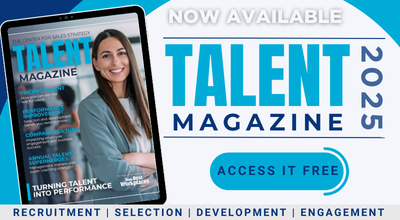
Picture your sales team working together like a well-oiled machine. They collaborate effectively, support each other without question, celebrate every success with enthusiasm, and, of course, they close a lot of deals.
Now, imagine adding a new member to this tight-knit group who has top talent, skills, and experience on paper but clashes with the team. He doesn’t collaborate well, wants all of the recognition for himself, and blames mistakes on others. Suddenly, the harmony is disrupted, and chaos threatens to unravel the team you’ve worked hard to build. But he looked like a great fit on paper, right?
Finding the right fit goes beyond skills and experience —it's about cultural alignment. In today's fiercely competitive business landscape, cultural alignment in recruitment has become more than just a buzzword; it's a strategic necessity.
What is Cultural Alignment?
Cultural alignment refers to the harmonious match between a candidate's values, beliefs, work ethic, and communication style with those of the organization. When teams share a common purpose and work together cohesively, productivity soars, employee engagement rises, and ultimately, success follows.
Hiring someone who fits well into your company's culture is like finding the missing piece of a puzzle. When employees align with the organization's values and mission, they become more engaged, committed, and invested in its success. This shared dedication drives them to go the extra mile.
Studies have shown that culturally aligned teams are up to 30% more productive and have a 40% lower turnover rate than teams with poor cultural alignment.
Overlooking cultural alignment can lead to a host of issues. Misaligned employees may struggle to adapt, create interpersonal conflicts, and experience lower job satisfaction. As a result, team morale may suffer, productivity may decline, and turnover rates could skyrocket, costing the company (and you!) time, money, and talent.
How Can You Determine if Someone is Culturally Aligned?
1. Knowing and defining your company’s Reason for Being and Core Values
Knowing these is key to cultural alignment.
- Your Reason for Being is your “why,” or your purpose. It’s what gets all of your engaged employees out of bed in the morning! They’re working together for something larger than themselves. Someone with a strong cultural alignment will be inspired by your Reason for Being and want to jump on board to support the larger purpose of your organization.
- Your Core Values are your “how.” They’re the rules of the game, and they define how your team treats each other, works together, talks to each other, and engages with prospects and clients. It’s important for someone to have personal values that align with your company’s Core Values. If your company values integrity, but you caught someone lying on their resume, chances are your values don’t align.
2. Ask the right questions
Carefully crafted cultural alignment interview questions can give you a strong insight as to whether or not someone may be the right fit.
- “Can you describe the work environment where you thrive the most?” delves into a candidate’s ideal work environment and offers insights into whether or not they would flourish in your workplace environment.
- “How do you handle conflicts and differing opinions within your team?” assesses someone’s ability to collaborate and navigate conflict resolution positively.
- “When have you had to adapt to a new company culture? How did you approach it?” examines someone’s adaptability, which is almost essential in today’s constantly evolving business landscape.
- Behavioral questions like "Tell us about a time when..." allow candidates to draw from real-life experiences. These provide more genuine responses and enable you to gauge how well someone’s past actions align with your company's cultural expectations.
- Questions surrounding your Core Values can give you insight into someone’s personal values. Back to our example of integrity, you could ask something like, “What have you done when you’ve seen someone bend the rules or go against a policy?”
3. Panel interviews
Panel Interviews involving multiple team members allow many people to get to know the candidate, while opening the door to various perspectives on someone’s cultural alignment.
Someone may pick up on a red flag that you’ve missed. Two, three, four, or five heads are always better than one.
4. Job auditions
Job auditions, or trial periods, let candidates demonstrate their abilities and cultural alignment in real-world scenarios. Observing how candidates interact with the team and adapt to the environment will help make informed hiring decisions, and also ensure the candidate can really see him or herself working at your organization as well.
5. Check References
Last, but certainly not least, have you actually checked those references?
Reference checks provide valuable insights into a candidate's past behaviors, which usually give you a glimpse into the future. Consider checking not only the references a candidate provides but also the people in your network who you have in common. You never know what you may learn – and knowledge is power.
Conclusion
Hiring employees who share the organization's values and purpose has a profound impact on overall success and employee engagement. It’s tempting to immediately hire the person who has top talent and experience, but cultural alignment is a large part of what transforms a group of individuals into a cohesive and high-performing sales team.
Finding someone who is culturally aligned with your organization isn’t always a walk in the park, but it’s well worth the time investment. The impact one misaligned person can have on your team is too detrimental to risk.
Stephanie Downs said in our 2023 Talent Magazine, “Hire tough so you can manage easy!”




